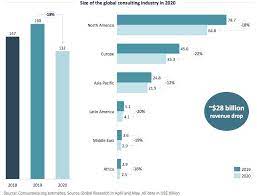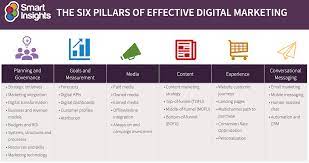Unleashing Success: Navigating the Dynamic Strategy Consulting Market
The Strategy Consulting Market: Navigating Business Success
In today’s fast-paced and highly competitive business landscape, companies face a multitude of challenges. From rapidly evolving market dynamics to disruptive technologies, businesses must constantly adapt to stay ahead. This is where strategy consulting firms play a vital role in helping organizations navigate the complexities and make informed decisions.
The strategy consulting market has grown exponentially in recent years, reflecting the increasing need for expert guidance in developing effective business strategies. These firms provide invaluable insights, expertise, and methodologies that enable companies to identify opportunities, mitigate risks, and drive sustainable growth.
One of the key advantages of engaging a strategy consulting firm is their ability to bring an external perspective. Often, businesses can become entrenched in their own ways of thinking and struggle to see beyond their existing frameworks. Strategy consultants bring fresh eyes and unbiased analysis to the table, challenging conventional thinking and offering innovative solutions.
Strategy consulting firms employ highly skilled professionals with diverse backgrounds and expertise across various industries. This breadth of knowledge allows them to understand the unique challenges faced by different sectors and tailor strategies accordingly. Whether it’s technology, finance, healthcare, or consumer goods – these experts possess deep industry insights that help businesses stay ahead of the curve.
Furthermore, strategy consultants possess extensive experience working with companies of all sizes – from startups to multinational corporations. They have a keen understanding of market trends, competitive landscapes, and emerging opportunities. By leveraging this expertise, they assist organizations in making informed decisions that align with their long-term goals.
Collaboration lies at the heart of effective strategy consulting engagements. Consultants work closely with clients to gain a comprehensive understanding of their business objectives, values, and aspirations. Through this collaborative approach, they develop tailored strategies that address specific needs while considering external factors such as customer preferences and regulatory environments.
Another crucial aspect of strategy consulting is change management. Implementing new strategies often requires organizational transformation – a process that can be met with resistance from employees. Strategy consultants help companies navigate this change by developing comprehensive change management plans, ensuring smooth transitions and maximizing employee buy-in.
The strategy consulting market is also evolving to meet the demands of the digital age. With technology driving rapid disruption across industries, consultants now offer expertise in areas such as digital transformation, data analytics, and cybersecurity. These additional capabilities enable businesses to leverage technology effectively and stay competitive in a rapidly changing environment.
In conclusion, the strategy consulting market is a critical component of modern business success. By leveraging the expertise and insights of these firms, companies can navigate complex challenges, capitalize on opportunities, and drive sustainable growth. Whether it’s formulating a new market entry strategy or redefining business models, strategy consultants provide invaluable guidance that propels organizations towards their goals. In an era of constant change and uncertainty, partnering with a reputable strategy consulting firm can be a game-changer for businesses aiming to thrive in today’s dynamic marketplace.
Commonly Asked Questions About the Strategy Consulting Market in the UK
- What is the demand for strategy consulting?
- What is the market size of strategy consulting?
- What are the top 3 strategy consultants?
- What is strategic consulting in marketing?
What is the demand for strategy consulting?
The demand for strategy consulting services has been steadily increasing in recent years. Businesses across various industries recognize the value of strategic guidance and seek the expertise of consultants to navigate complex challenges, drive growth, and stay competitive in the market.
One of the primary drivers of demand is the rapidly changing business landscape. Globalization, technological advancements, and shifting consumer preferences have created a highly dynamic and unpredictable environment. Companies need to adapt quickly to these changes to remain relevant and successful. Strategy consultants offer valuable insights into market trends, emerging opportunities, and potential risks, helping businesses make informed decisions.
Additionally, as competition intensifies, organizations are seeking ways to differentiate themselves from their rivals. Strategy consultants assist in developing unique value propositions, identifying new revenue streams, and optimizing business models. They help companies gain a competitive edge by formulating effective strategies that align with their goals.
Another factor contributing to the demand for strategy consulting is the increasing complexity of business operations. As companies expand globally or diversify their offerings, they face intricate challenges related to supply chain management, market entry strategies, mergers and acquisitions, and more. Strategy consultants bring specialized knowledge and experience in these areas to help businesses overcome obstacles and achieve success.
Furthermore, the digital revolution has significantly impacted the demand for strategy consulting services. Organizations need support in navigating digital transformation initiatives such as adopting new technologies, leveraging data analytics for decision-making, implementing cybersecurity measures, and optimizing digital marketing strategies. Strategy consultants with expertise in these areas are sought after by businesses looking to harness technology effectively.
Moreover, startups and small businesses often lack internal resources or expertise in strategic planning. They turn to strategy consultants for guidance on scaling their operations or entering new markets. Consultants provide tailored advice based on industry best practices and help these organizations develop robust growth strategies.
Overall, the demand for strategy consulting remains high as businesses recognize its value in driving growth and managing change effectively. The ability of strategy consultants to provide objective insights, industry expertise, and innovative thinking makes them invaluable partners for organizations seeking to navigate the complexities of the modern business landscape.
What is the market size of strategy consulting?
The market size of the strategy consulting industry can vary depending on the source and methodology used for measurement. However, it is generally considered to be a multi-billion-dollar industry worldwide.
According to a report by Statista, the global management consulting market, which includes strategy consulting, was valued at approximately $270 billion in 2020. This figure represents the total revenue generated by management consulting firms across various sectors and regions.
It’s important to note that the strategy consulting market is highly fragmented, with numerous firms operating at different scales and catering to different industries. The market size can also vary by region, as different countries have varying levels of demand for strategy consulting services.
The growth of the strategy consulting market is fueled by several factors. Firstly, businesses across industries recognize the need for expert guidance in developing effective strategies to navigate complex challenges and capitalize on opportunities. Additionally, as technology continues to disrupt traditional business models, companies seek assistance from consultants with specialized knowledge in areas such as digital transformation and data analytics.
Furthermore, globalization has expanded opportunities for strategy consulting firms as companies look to enter new markets or expand their operations internationally. The increasing complexity of regulatory environments and changing customer preferences also contribute to the demand for strategic advice from consultants.
Overall, while precise figures may vary depending on sources and definitions used, it is clear that the strategy consulting market is substantial and continues to grow as businesses recognize its value in driving sustainable growth and success.
What are the top 3 strategy consultants?
While it is subjective to determine the top strategy consultants as rankings can vary based on different criteria, three well-known and highly regarded strategy consulting firms are:
- McKinsey & Company: McKinsey & Company is one of the world’s leading strategy consulting firms, known for its extensive global reach and prestigious clientele. With a focus on delivering impactful solutions, McKinsey offers expertise in various industries and functional areas. They are renowned for their rigorous analysis, data-driven approach, and ability to tackle complex business challenges.
- Boston Consulting Group (BCG): BCG is another prominent strategy consulting firm that assists organizations in achieving sustainable competitive advantage. Known for their innovative thinking and strategic insights, BCG helps clients navigate market disruptions, optimize operations, and drive growth. They have a strong track record of working with both public and private sector clients across industries.
- Bain & Company: Bain & Company is recognized globally for its strategic consulting services that help companies achieve enduring results. With a client-centric approach, Bain collaborates closely with organizations to develop tailored strategies that deliver tangible outcomes. They specialize in areas such as performance improvement, mergers and acquisitions, digital transformation, and customer experience enhancement.
It’s important to note that the landscape of strategy consulting is vast, with numerous other reputable firms offering valuable services to clients worldwide. The choice of a strategy consultant should be based on specific industry expertise, project requirements, and alignment with the organization’s goals and values.
What is strategic consulting in marketing?
Strategic consulting in marketing refers to the practice of providing expert guidance and advice to businesses in developing effective marketing strategies. It involves analyzing market trends, consumer behavior, competitive landscapes, and internal capabilities to help companies make informed decisions that drive growth and achieve their marketing objectives.
Strategic consultants in marketing work closely with businesses to understand their goals, target audience, and unique value propositions. They conduct thorough research and analysis to identify market opportunities, assess competitors, and determine the most effective marketing channels and tactics.
The primary focus of strategic consulting in marketing is to develop a comprehensive marketing strategy that aligns with the overall business objectives. This includes defining clear positioning, identifying target markets, establishing key messages, and determining the optimal mix of marketing activities.
Additionally, strategic consultants provide guidance on brand development and management. They help companies define their brand identity, values, and personality to create a strong brand image that resonates with the target audience. This includes developing brand positioning statements, designing visual elements such as logos and packaging, and crafting compelling brand narratives.
Furthermore, strategic consulting in marketing involves advising businesses on customer segmentation and targeting. Consultants assist in identifying specific customer segments that are most likely to be receptive to a company’s products or services. By understanding the unique needs and preferences of these segments, consultants can help tailor marketing messages and campaigns to effectively reach and engage them.
Another crucial aspect of strategic consulting in marketing is evaluating the effectiveness of current marketing efforts. Consultants analyze key performance indicators (KPIs) such as sales data, customer feedback, website analytics, and social media metrics to assess the impact of existing strategies. Based on these insights, they recommend adjustments or new initiatives for improved results.
In summary, strategic consulting in marketing combines industry expertise with data-driven analysis to develop tailored strategies that drive business growth. By leveraging market insights and understanding consumer behavior patterns, strategic consultants guide businesses in making informed decisions about positioning their brands effectively, targeting the right audience, and implementing impactful marketing campaigns. This collaborative approach helps businesses achieve their marketing goals and stay competitive in a rapidly evolving marketplace.




